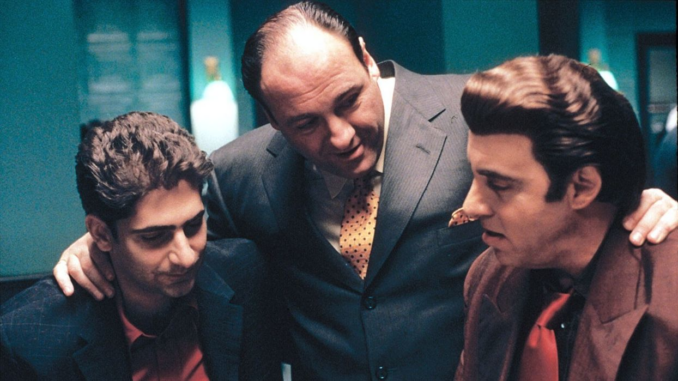
Introduction
Season 2 of The Sopranos takes everything we loved about the first season and cranks it up a notch. The stakes are higher, the characters are deeper, and the drama is unrelenting. It’s a season filled with tension, betrayal, family turmoil, and, of course, unforgettable moments. But with so many gripping episodes to choose from, how do we decide which one truly stands out?
In this article, we’ll rank every episode from The Sopranos Season 2, diving deep into the storylines, character arcs, and key moments that made each episode memorable. Whether you’re a lifelong fan or a newcomer to the series, this ranking will give you a fresh perspective on one of television’s greatest seasons.
Ranking Every Episode from The Sopranos Season 2
Before we get into the rankings, let’s quickly set the stage. Season 2 picks up with Tony Soprano grappling with family drama, power struggles within his crew, and growing tensions with his mother, Livia. It also explores the complexities of mob life, the underworld, and the emotional toll it takes on Tony and those closest to him.

H2: The Criteria for Ranking Season 2’s Episodes
To rank these episodes, we’ll consider several factors:
- Character development: How much do we learn about Tony and other key characters?
- Story progression: Does the episode move the overall plot forward, or does it feel like filler?
- Memorable moments: Is there an unforgettable scene or quote that resonates long after the credits roll?
- Emotional impact: How powerful are the emotions the episode evokes?
Let’s dive in and start the countdown.
13. “The Knight in White Satin Armor” (Season 2, Episode 13)
While The Knight in White Satin Armor delivers some memorable moments, it’s arguably the weakest episode in Season 2. The episode’s primary focus is on the fallout from Richie Aprile’s actions and Tony’s response. While the tension surrounding Richie’s future is compelling, the overall pacing feels uneven, with a few storylines not delivering the emotional weight they should.
H3: What Works:
- The powerful final moments with Richie and Tony.
- Great character interactions, especially between Tony and Carmela.
What Doesn’t Work:
- The episode occasionally feels like it’s spinning its wheels, especially with the subplot involving Janice.
12. “Bust Out” (Season 2, Episode 6)
Bust Out explores Christopher Moltisanti’s increasing ambition and his complex relationship with Tony. The episode reveals more about the pressures of mob life, particularly when it comes to managing money and loyalty. The main focus here is on Tony’s attempts to protect his business and Christopher’s inevitable stumble into dangerous territory.
H3: What Works:
- The tension between Tony and Christopher as they navigate the mob world.
- The rise of Christopher as a key player in the mob’s operations.
What Doesn’t Work:
- The pacing of the episode feels a bit slow, with too much focus on secondary characters like Paulie and Pussy.
11. “D-Girl” (Season 2, Episode 4)
In D-Girl, Christopher struggles with his desire to break into Hollywood, while Tony wrestles with the idea of Christopher getting involved in a different kind of business. This episode digs into Christopher’s inner conflict about his future, his loyalty to Tony, and his dreams of becoming a filmmaker. However, the episode’s plot doesn’t pack as much punch compared to others in the season.
What Works:
- Insight into Christopher’s character and his struggles with his identity.
- Funny moments, especially with the Hollywood industry parody.
What Doesn’t Work:
- The subplot of Christopher’s ambition feels disconnected from the larger mob narrative.
10. “The Happy Wanderer” (Season 2, Episode 7)
The Happy Wanderer continues the tension between Tony and his mother, Livia, while exploring Tony’s vulnerability. This episode also features a gripping storyline with Tony’s crew and their attempt to resolve conflicts that threaten their operations. The episode is a solid one, but it lacks the emotional intensity of the best episodes in the season.
What Works:
- The exploration of Tony’s complex relationship with his mother.
- Interesting dynamics with Tony’s crew as they navigate internal problems.
What Doesn’t Work:
- The pacing feels slow, and the subplot of the wandering salesman doesn’t fully connect.
9. “Big Girls Don’t Cry” (Season 2, Episode 3)
This episode dives deeper into the emotional lives of the characters, particularly Tony’s vulnerability and his complicated relationships. It’s a solid episode that balances humor, tension, and dramatic moments. However, it doesn’t quite carry the same level of suspense as the stronger episodes of Season 2.
What Works:
- The moments between Tony and his therapist, Dr. Melfi.
- The exploration of Tony’s mental state and struggles.
What Doesn’t Work:
- Some secondary plotlines feel less compelling in comparison to the main drama.
8. “Commendatori” (Season 2, Episode 8)
Commendatori presents an interesting turn of events as Tony travels to Italy. The episode highlights Tony’s cultural heritage, mob ties, and the impact of his actions on a global scale. The juxtaposition of the old-world mafia with the modern American mafia is fascinating, but the episode occasionally feels like it lingers too long on slower scenes.
What Works:
- Beautifully shot scenes in Italy that enrich the cultural context.
- Tony’s reflection on his role in the family business.
What Doesn’t Work:
- Some of the pacing slows down the central plot, making it feel less urgent.
7. “The Sopranos” (Season 2, Episode 1)
The season premiere picks up where the first season left off, and it does a great job of setting the stage for the drama to come. Tony’s world is complicated by internal and external forces, and this episode hits the ground running with intrigue, family drama, and classic mob action.
What Works:
- Strong opening that reintroduces key themes and characters.
- Intense family drama between Tony and his crew.
What Doesn’t Work:
- The pacing is a bit rushed as it tries to set up multiple storylines at once.
6. “House Arrest” (Season 2, Episode 5)
House Arrest is a fan favorite that deals with Tony’s attempt to regain control of his empire while dealing with house arrest. This episode cleverly intertwines Tony’s struggles with his crew and his family, creating a tense atmosphere throughout. It’s an episode filled with sharp dialogue, powerful moments, and a tense conclusion.
What Works:
- Tony’s psychological conflict while on house arrest.
- The building tension between Tony and his crew.
What Doesn’t Work:
- Some subplots feel disconnected from the central theme.
5. “Full Leather Jacket” (Season 2, Episode 9)
Full Leather Jacket is a pivotal episode that explores the fractures within Tony’s relationships, particularly with his family. The emotional stakes are high, and the episode provides insight into Tony’s deteriorating mental state. The strong character development and gripping scenes make it one of the best in the season.
What Works:
- Deep emotional exploration of Tony’s psyche.
- The escalating tension in Tony’s family.
What Doesn’t Work:
- The plotline with the FBI subplot feels somewhat underdeveloped.
4. “Turtle’s Revenge” (Season 2, Episode 10)
This episode takes things up a notch with high-octane drama, betrayal, and more character conflicts. Tony’s world starts to fall apart as his personal and professional lives collide in unexpected ways. The stakes are higher than ever, and the payoff is worth it.
What Works:
- The emotional and psychological conflict builds.
- A gripping plot that pulls the audience in.
What Doesn’t Work:
- Some viewers might find the plot a little bit predictable.
3. “Blue Comet” (Season 2, Episode 11)
Blue Comet is where everything comes to a head. The tension between Tony and his enemies finally erupts, and the characters are forced to confront the consequences of their actions. The emotional weight of this episode is staggering, and the payoff is immense.
What Works:
- Intense, heart-stopping moments.
- Powerful character development that sets the stage for the finale.
What Doesn’t Work:
- The pacing in some sections is slow, but it’s worth it for the payoff.
2. “Funhouse” (Season 2, Episode 13)
A true masterpiece, Funhouse is an episode where Tony faces his deepest fears. It’s intense, surreal, and packed with symbolic moments. This episode will stick with you long after it’s over, cementing its place as one of the best episodes in The Sopranos history.
H3: What Works:
- Incredible psychological exploration of Tony.
- Unforgettable surreal sequences.
What Doesn’t Work:
- For some, the dream sequences might be a bit jarring.
Conclusion: The Best of The Sopranos Season 2
Season 2 of The Sopranos is a true testament to what makes the series so special—complex characters, intense drama, and unforgettable moments. Whether you love the high-stakes action or the deeply human exploration of family and loyalty, there’s something for every fan in this season.
From the emotional rollercoaster of Funhouse to the intense revelations in Blue Comet, these episodes are what make Season 2 unforgettable. Which one is your favorite?
FAQs
1. Why is Season 2 of The Sopranos considered one of the best?
Season 2 builds on the foundation of Season 1, deepening character arcs, intensifying drama, and delivering some of the most emotional and powerful moments in the series.
2. What is the most iconic episode from Season 2?
Funhouse stands out as the most iconic episode, thanks to its surreal dream sequences and deep psychological exploration of Tony Soprano.
3. Which episode of Season 2 has the most memorable quote?
Blue Comet features several standout moments, including powerful quotes that encapsulate the show’s core themes of loyalty, betrayal, and the mob life.
4. What are the best character moments in Season 2?
The season is filled with great character moments, but Tony’s evolution, his struggle with his mother, and his complicated relationship with Carmela stand out.
5. Why is The Sopranos so highly regarded?
The Sopranos is revered for its complex characters, its deep exploration of themes like power, family, and identity, and its ability to mix crime drama with psychological depth.